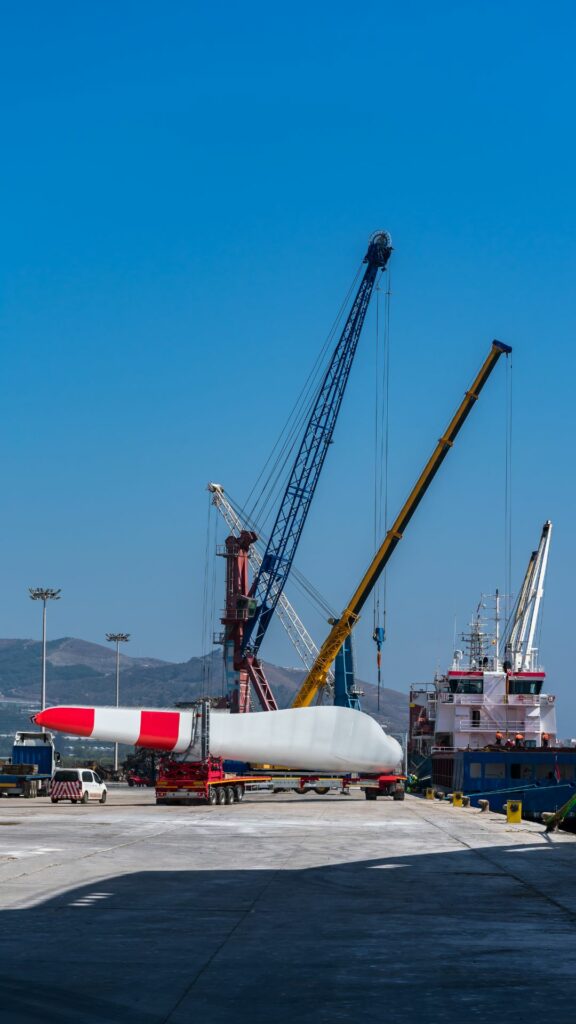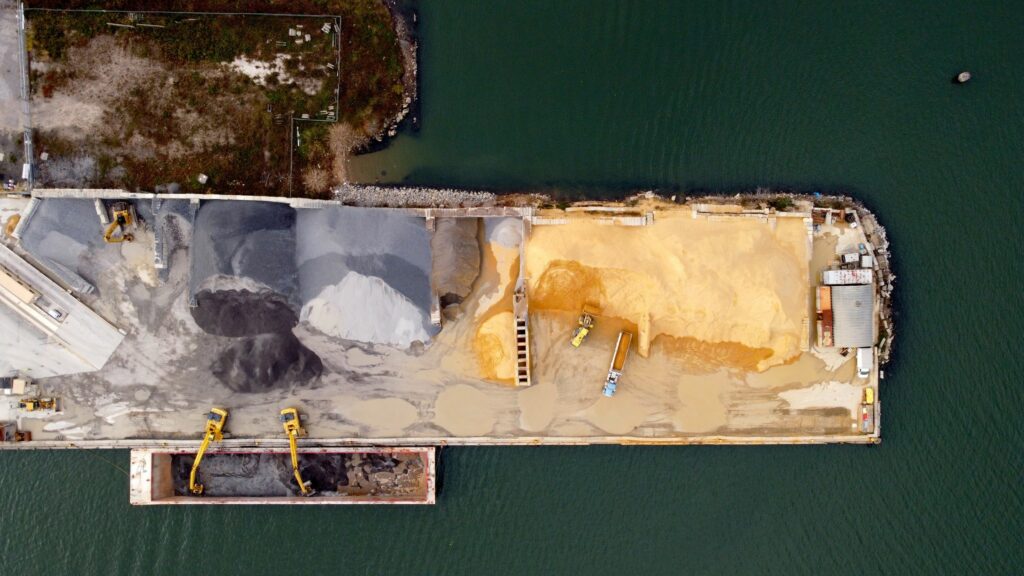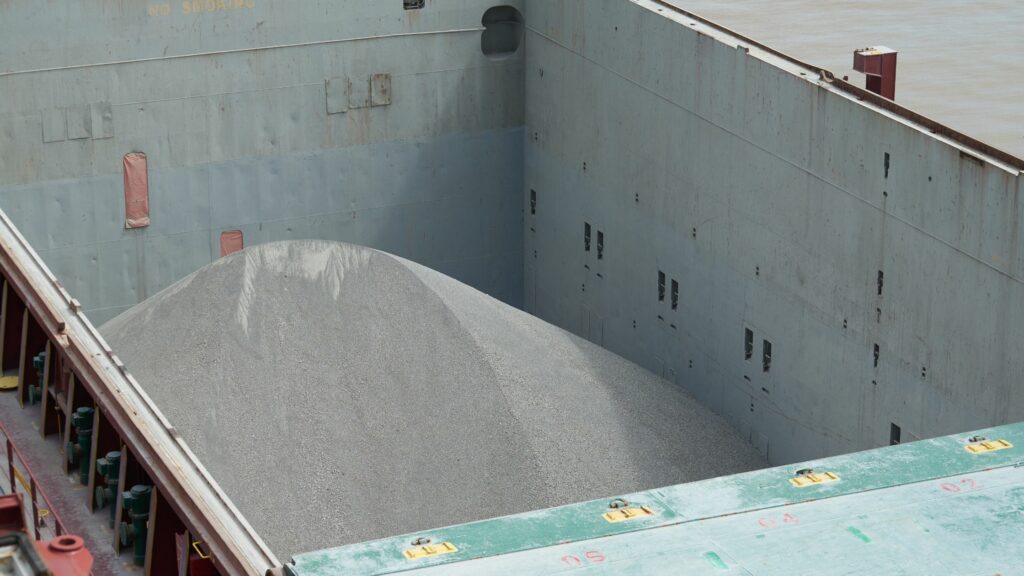Physical Address
304 North Cardinal St.
Dorchester Center, MA 02124

Project cargo logistics often operates in the shadow of its more routine freight and container shipping counterparts. Yet, it distinguishes itself through the meticulous coordination and execution required to move oversized and heavy-lift cargo. This niche within the logistics industry is defined by its complexity and the unique challenges it presents, offering a specialized service that is crucial for the execution of large-scale projects across the globe.
The essence of project cargo logistics lies in its ability to handle cargo that defies standardization, necessitating a bespoke approach to transportation and storage. Key services within this sector include Multimodal Transportation Solutions, Specialized Storage and Warehousing, and Comprehensive Customs Clearance Services, each tailored to accommodate the specific requirements of oversized shipments. Delving deeper, project cargo logistics encompasses a range of activities, from detailed route surveying and planning to the execution of feasibility studies for the safe and efficient transport of heavy and oversized items.
Each service is designed to navigate the complexities of global logistics networks, ensuring that project cargo reaches its destination safely and on schedule. The following sections will explore these services in detail, shedding light on the intricate processes and expertise required to manage the logistics of project cargo successfully.
Project cargo logistics is a specialized sector within the logistics industry, focusing on the transportation and management of oversized and heavy-lift items that exceed the dimensions and weight limits of standard shipping methods. This niche involves the movement of large-scale commodities, such as industrial equipment, large machinery, factory components, and renewable energy infrastructure like wind turbines, which require bespoke logistics solutions due to their size, weight, or the complexity of their components. The essence of project cargo logistics lies in its comprehensive approach, encompassing a range of services tailored to meet the unique demands of transporting extraordinary cargoes.
These services include multimodal transportation options (covering road, rail, sea, and air freight), specialized storage and warehousing solutions, and extensive planning efforts, from detailed route surveys to feasibility studies. It demands a high level of coordination and expertise to navigate the challenges of delivering these cargoes safely, efficiently, and in compliance with global regulatory requirements. In summary, project cargo logistics plays a pivotal role in enabling the execution of large-scale projects and global infrastructure development, by facilitating the movement of materials that are critical yet challenging to transport due to their extraordinary characteristics.
Project cargo logistics is indispensable for the execution of oversized and heavy-lift projects, the facilitation of global infrastructure development, and the enhancement of international trade efficiency. Its specialized services ensure the safe, efficient, and compliant transportation of large-scale components essential for various industries and projects worldwide.
Project cargo logistics plays a pivotal role in executing oversized and heavy-lift projects by providing the necessary expertise and resources for transporting exceptionally large and heavy items. For instance, the transportation of turbine blades for a wind farm project in the North Sea required intricate planning and the use of specialized vessels. Similarly, the delivery of components for a large-scale manufacturing plant in China involved coordinating multiple modes of transport, including road, rail, and sea freight, demonstrating the sector’s capability to handle complex logistics challenges.
| Project Type | Description | Example |
|---|---|---|
| Wind Farm Projects | Transporting turbine blades and other components for wind energy projects. | North Sea wind farm project involving the shipment of turbine blades. |
| Manufacturing Plants | Delivery of oversized machinery and equipment for manufacturing facilities. | Transport of components for a large-scale manufacturing plant in China. |
Project cargo logistics is crucial for global infrastructure development, enabling the construction of bridges, tunnels, energy facilities, and more. A notable example includes the construction of the Hong Kong-Zhuhai-Macau Bridge, where project cargo logistics facilitated the transportation of massive steel structures and construction materials across countries. Another example is the development of hydroelectric power plants in South America, where logistics providers managed the delivery of turbines and generators through challenging terrains.
| Infrastructure Project | Description | Example |
|---|---|---|
| Bridge Construction | Transporting materials and components for bridge construction. | Hong Kong-Zhuhai-Macau Bridge involving the shipment of steel structures. |
| Energy Facilities | Delivery of equipment for energy production and distribution facilities. | Hydroelectric power plants in South America requiring transport of turbines. |
Project cargo logistics enhances international trade efficiency by optimizing the movement of goods across borders, reducing shipping times, and minimizing costs. A case study on the transportation of prefabricated modules from Southeast Asia to North America highlights how project cargo logistics reduced transit times by 25% through route optimization and multimodal transport solutions. Additionally, the sector’s ability to manage complex logistics chains and ensure regulatory compliance has improved trade flows between countries, contributing significantly to global economic growth.
| Aspect | Impact | Example |
|---|---|---|
| Transit Time Reduction | Decreasing the time required for shipping oversized and heavy cargoes. | Prefabricated modules shipped from Southeast Asia to North America with a 25% reduction in transit time. |
| Cost Efficiency | Minimizing the costs associated with the transportation of project cargoes. | Route optimization and multimodal solutions leading to cost savings for international projects. |
In summary, project cargo logistics is vital for supporting the execution of large-scale projects, promoting global infrastructure development, and enhancing the efficiency of international trade. Its contributions are invaluable to the logistics industry and the global economy, underscoring the essential nature of its services in facilitating the movement of oversized and heavy cargoes.
Project cargo logistics faces a myriad of challenges, each adding layers of complexity to the transportation of oversized and heavy-lift cargoes. Addressing these challenges requires innovative solutions, meticulous planning, and the ability to adapt to unforeseen circumstances. Below are detailed examples and case studies that illustrate how specific challenges have been overcome in past projects.
One of the primary challenges in project cargo logistics is navigating the size and weight limitations imposed by transport infrastructure and equipment. For example, the transportation of a massive oil refinery reactor, weighing over 1,500 tons and measuring over 100 meters in length, required the use of a specially designed modular transport vehicle. The project team also had to conduct a detailed route survey to identify and reinforce bridges and modify roadways to accommodate the exceptional load, demonstrating the level of expertise and planning required to overcome size and weight challenges.
Ensuring regulatory and customs compliance across different countries can be particularly challenging due to the diverse and sometimes conflicting regulations. A notable case involved the shipment of power generation equipment from Europe to a remote location in Africa. The logistics team had to navigate through multiple countries, each with its own set of customs regulations and procedures.
Success was achieved through meticulous documentation, pre-arranged customs clearances, and close coordination with local authorities, ensuring a seamless transit through each jurisdiction without delays.
Coordinating complex logistics chains involves managing multiple stakeholders, including suppliers, transporters, and regulatory bodies. A complex project that illustrates this challenge involved the delivery of wind turbine components from various global manufacturers to a wind farm in South America. The project required synchronized planning and execution across different time zones and languages, with components arriving just-in-time for assembly.
Effective communication, robust project management tools, and a centralized command center were key to coordinating the logistics chain and ensuring the project’s success.
Managing risks and insurance is critical in project cargo logistics due to the high value and essential nature of the cargoes involved. An example of risk management in action was during the shipment of satellite components to a launch site. The project faced significant risks, including weather-related delays and political instability in transit countries.
Comprehensive risk assessments were conducted, and contingency plans were developed, including alternative routes and secure storage locations. Tailored insurance coverage was also arranged to protect against potential losses, providing financial security and peace of mind for all parties involved.

Project cargo logistics encompasses a comprehensive suite of services designed to address the unique challenges of transporting oversized and heavy-lift cargoes. These services are meticulously tailored to ensure the safe, efficient, and compliant movement of project cargoes across global logistics networks. Below, we delve into specific services, highlighting their importance through examples and case studies.
Multimodal transportation solutions integrate various modes of transport—road, rail, sea, and air freight—to offer the most efficient and cost-effective transportation path for oversized and heavy-lift cargoes. For instance, the transportation of a large turbine required a combination of road transport for initial movement from the manufacturing facility, rail for inland travel, a sea voyage for international shipping, and finally, air freight for urgent delivery of critical components. This approach ensures flexibility and efficiency, adapting to the specific needs and constraints of each project.
Specialized storage and warehousing services provide secure and suitable environments for the storage of project cargoes, catering to specific requirements such as temperature control or high-security conditions. A notable example involves the storage of sensitive electronic equipment destined for a new data center. The equipment required temperature-controlled warehousing to prevent damage from environmental conditions, ensuring the components remained in optimal condition until installation.
Comprehensive customs clearance services are crucial for navigating the complex landscape of international customs regulations. A case study highlighting the importance of these services involves the shipment of a large industrial crane from Germany to Australia. The project faced significant potential delays due to stringent Australian import regulations.
However, expert handling of customs clearance, including the preparation and submission of detailed documentation and the efficient management of duty payments, ensured the crane arrived on schedule, avoiding costly project delays.
| Service Offered | Description | Example |
|---|---|---|
| Multimodal Transportation Solutions | Integrates road, rail, sea, and air freight to navigate the complexities of global transport. | Transporting a turbine required a combination of transport modes to ensure timely and safe delivery. |
| Specialized Storage and Warehousing | Provides tailored storage solutions, including temperature-controlled and high-security options. | Sensitive electronic equipment for a data center was stored under temperature-controlled conditions to maintain its integrity. |
| Comprehensive Customs Clearance Services | Manages all aspects of customs compliance, facilitating smooth international transport. | The shipment of an industrial crane to Australia, where expert customs handling prevented delays. |
Selecting the right project cargo logistics provider is crucial for ensuring the successful transportation of oversized and heavy-lift cargoes. Key considerations include assessing the provider’s experience with complex projects, experience in overall bulk cargo logistics, evaluating their global network alongside local expertise, reviewing their safety records and compliance standards, and considering their technology and tracking capabilities. These factors are fundamental to ensuring your project cargo is delivered efficiently, safely, and in compliance with all regulatory requirements.
When assessing a provider’s experience in handling complex projects, it’s essential to consider their track record, the diversity of projects they’ve managed, and their problem-solving capabilities. Questions to ask potential providers include:
| Criteria | Questions to Ask | Why It’s Important |
|---|---|---|
| Track Record | Can you provide case studies or references for similar projects? | Demonstrates proven experience and success in handling complex logistics challenges. |
| Problem-Solving Capabilities | How do you approach unforeseen challenges during projects? | Indicates the provider’s ability to adapt and find solutions to unexpected problems. |
| Project Diversity | What types of complex projects have you managed in the past? | Shows the provider’s breadth of experience across different industries and project types. |
A provider’s global network and local expertise are critical for managing the logistical and regulatory challenges across different regions. A strong global presence ensures that the provider can effectively coordinate international logistics operations, while local knowledge is crucial for navigating specific regional requirements and challenges. An example of the importance of this combination is a project involving the transportation of wind turbine components from Europe to Asia.
The provider’s global network facilitated the international shipping and logistics, while their local expertise in Asia ensured compliance with regional regulations and optimized the final inland transportation.
| Aspect | Importance | Example |
|---|---|---|
| Global Network | Ensures the provider can manage logistics operations worldwide. | Facilitated the international shipping of wind turbine components. |
| Local Expertise | Crucial for navigating regional regulations and logistics challenges. | Optimized inland transportation in Asia, adhering to local regulations. |
Safety records and compliance standards are critical indicators of a provider’s commitment to operational integrity and regulatory adherence. Evaluating these aspects involves reviewing the provider’s history of safety incidents, their compliance with international logistics regulations, and their certifications. This evaluation helps minimize risks and ensures the secure handling of your project cargo.
In today’s logistics environment, a provider’s technology and tracking capabilities are indispensable for ensuring transparency and efficiency. Advanced technological solutions, such as real-time GPS tracking and RFID, enable real-time visibility of shipments, enhancing control over the logistics process. Providers leveraging cutting-edge technology demonstrate a commitment to delivering efficient, reliable, and customer-focused logistics solutions.
By thoroughly evaluating these aspects, you can select a project cargo logistics provider that meets the specific needs of your project, ensuring successful execution and delivery.

The project cargo logistics sector is witnessing significant transformations, propelled by technological advancements and changing global demands. A key trend is the adoption of advanced tracking technologies, such as real-time GPS and RFID tracking. These technologies offer unprecedented visibility into break bulk cargo movements, enabling more efficient and reliable logistics operations.
Sustainability is also becoming a focal point in logistics, with an emphasis on eco-friendly transportation modes and materials. This shift towards sustainability reflects a growing commitment within the industry to minimize environmental impact, exploring alternative fuels and route optimization to reduce carbon emissions. The integration of AI and machine learning is revolutionizing project cargo logistics, offering powerful tools for route optimization, risk management, and predictive analytics.
These technologies facilitate more precise and efficient planning, adapting to the complex demands of modern logistics. Furthermore, the growing complexity of global projects is driving the need for more innovative logistics solutions. As projects increase in scale and ambition, the logistics sector is evolving, offering sophisticated services to navigate these challenges successfully.
The adoption of advanced tracking technologies marks a significant trend in project cargo logistics, enhancing the ability to efficiently monitor and manage shipments. This move towards sophisticated tracking methods signifies the industry’s commitment to leveraging technology for improved logistics outcomes.
Real-time GPS and RFID tracking technologies stand at the forefront of this shift, offering unparalleled visibility into bulk cargo movements. These tools are crucial for providing up-to-the-minute information on the location and status of shipments, setting a new standard for transparency and reliability in the logistics sector.
An emphasis on sustainability is reshaping logistics practices, with a focus on adopting eco-friendly transportation modes and materials. This trend reflects the industry’s response to global calls for environmental stewardship, driving innovations that reduce the ecological footprint of logistics operations.
The push towards sustainability has led to the increased use of eco-friendly transportation modes and materials, including alternative fuels, electric vehicles, and biodegradable packaging. These initiatives exemplify the logistics industry’s efforts to embrace greener practices and contribute to environmental conservation.
The increasing reliance on AI and machine learning within the project cargo logistics sector is transforming operations. These technologies are pivotal for route optimization and risk management, offering sophisticated solutions that enhance the efficiency and safety of logistics processes.
AI and machine learning are particularly valuable for route optimization and risk management, enabling logistics providers to analyze data and identify the most efficient routes while anticipating and mitigating potential risks. This application of technology ensures more strategic and secure transportation of cargoes.
The growing complexity of global projects necessitates innovative logistics solutions capable of addressing the intricate demands of transporting oversized and heavy-lift cargoes. This trend highlights the evolving nature of the logistics industry and its adaptability in the face of challenging project requirements.
As projects become more ambitious, the demand for innovative logistics solutions is on the rise. Logistics providers are called upon to develop new strategies and technologies that can accommodate the unique needs of these complex undertakings, underscoring the critical role of innovation in the advancement of the project cargo logistics field.